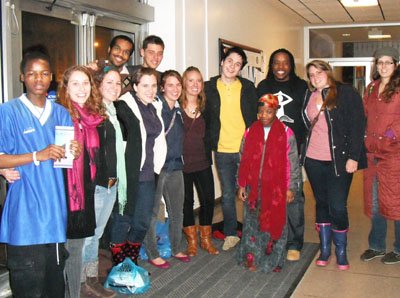
This past week, I was very fortunate to have the opportunity to visit three schools for four performances in five days. The first stop was the University of Pittsburgh, followed by Edina High School in Minnesota, and then Miami University in Ohio. In total, I spoke to over 1,000 students, all eager to learn what they can do to end the conflict in the Congo. From learning how to become responsible consumers, to discussing ways they can pressure their congressional representatives to support the Conflict Minerals Trade Act (HR 4128) requiring electronic companies to confirm that they are not importing products made with conflict minerals, these students were ready to take on the cause! In my wildest dreams, I never thought I would have an experience quite like last week.
I’m used to performing around the globe in front of thousands of people, but many of the events have not been solely focused on the Congo. For so long, many of us who have fought to raise awareness about the conflicts in the Congo (even before 1996-97) always felt as if we were alone in our little pockets around the globe, barely even knowing each other. We trudged forward because we knew that it was the right thing to do. On my speaking tour in 2010, the landscape looks completely different, and I now know that we will end the conflict in the Congo because there is a new generation of soldiers for humanity eager to fight for change!
This new generation has a fire in its belly that many of us have lost in adulthood. Social media has brought more people together in a shorter amount of time on this issue than in all decades past. I reminded my audiences last week that in the early 1900s, people like Mark Twain and W.E.B. Du Bois worked to end the “red rubber” conflict in Congo. At that time, rubber was in demand for tires, and Congo had it in large supply – just like conflict minerals now. Parents who didn’t produce enough rubber were punished by having the hands of their children cut off. Activism helped generate the public pressure necessary to end Belgian King Leopold II’s unquestioned exploitation of the Congo for his personal benefit. Fast forward to 2010 and we know that if they can do what they did in the early 1900s without TV, e-mails, and the Internet, there is no way we can miss this opportunity now! The students I saw in such a short time are proof that this movement is on the rise.

This isn’t the first series of speaking events Omekongo has undertaken as a spokesperson for Enough’s RAISE Hope for Congo campaign. Read his first post here.

